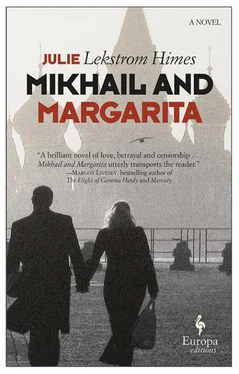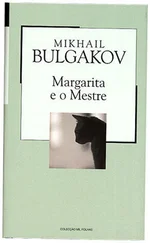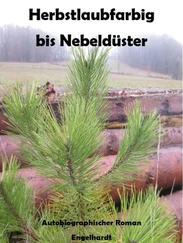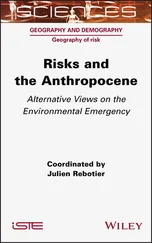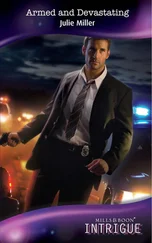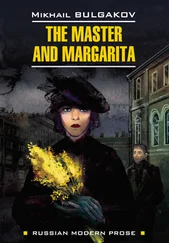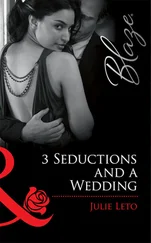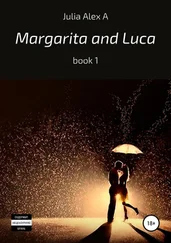Her reaction was unexpected. She looked embarrassed.
“What you saw at the Union restaurant,” she paused, as though still searching. “It wasn’t what it seemed, I think. We’d been apart for some time. Both of us—neither of us had been particularly satisfied. Not for a long time.”
She wanted to allay his concerns that should Mandelstam be released, she’d go back to him. That her heart wasn’t being honest with his. She thought this was what he was asking.
He remembered the restaurant at the Writers’ Union and Mandelstam’s exceeding generosity and he felt a sudden rise of emotion. The eve of his arrest, possibly his last night of freedom in this world, and he’d chosen to spend it with him.
“Do you think he’ll be released?” he asked her. This now seemed so unlikely as to be impossible and his asking of it all the more desperate, as though he had been the one who’d doomed Mandelstam. As though her optimism could save him. And in saving Mandelstam, save him as well.
She noticed none of this. She was coldly analytical in her reply.
“I don’t know. A lesser writer would be exiled, I think. But he is well known. It’s hard to predict if this will save him or—quite the opposite.”
He remembered the recitation in the street. If it’d been written on a building, they’d knock it down to destroy such words. They’d decide it wasn’t such a wonderful building. They’d build a lesser one in its place and proclaim it a palace.
“You don’t think they’ll let him go?”
“Why should they? Why would they risk whatever else he might say?”
“But if he promised—not to write?”
“Is that any different than locking him up?”
And if he promised not to speak? Bulgakov could hear Mandelstam’s voice recite the lines. No one would be saved.
He had released her hand; he wasn’t certain when he’d done this, at what point during her speech. The sensation of her fingers remained. How long before that would pass?
She crouched beside the chair and cocooned his hand within her own. As if he needed to be made still in order to listen. “Please understand—I think what you’re doing is—well, it’s brave. You’re not pretending that there wasn’t a crime committed here.” She paused. “I’m proud of you.”
She was thinking about the letter he was to write; believing this was his concern. He wanted to tell her that the letter had already been delivered; that its work was done.
“Don’t say that,” he said.
“But I am proud.”
He remembered the empty slate of the theater’s white marquee. What if he were never to publish again? He could tell her everything; confess his fears, his transgressions. She could redeem him. She had that power. If she could love him as a lesser man, perhaps he could tolerate himself.
“I’m certain whatever I do makes little difference,” he said. He tried to sound as though he believed this. He tried to sound weary of it all. As though he’d pushed against the world and the world was resolute. Tell me , he silently begged. Say there was nothing I could have done .
“It makes all the difference.” She took his face in her hands. “You know this.”
And even if she loved him, even if she forgave him, she’d never be dissuaded from that bedrock of faith. And he could never survive on that shore.
“I think—I’m tired,” he said. Her fingers slipped away.
“Of course.” She patted him on the shoulder, then kissed him lightly on the head. She said something about buying some food for them, preparing dinner.
He didn’t know what to tell her. Then he thought of a lie.
“I will be out later,” he said.
“That’s fine,” she said. “Whenever you return.”
“I don’t know when I’ll be back.”
He didn’t know what she’d registered from this. He couldn’t bring himself to look at her. The room was quiet. Then, after a moment, as though she’d come to some greater understanding, her words took on more certainty. “That’s fine.”
She made some excuse for her departure. He didn’t press her. He suspected whatever her reasons, they were truthful; she would not leave with even the smallest lie between them.
He nodded and closed his eyes.
The latch clicked softly. He listened to her steps on the stairs; to the outer door close. The building seemed abandoned.
He was free to do whatever he liked. He was free to do nothing.
He opened his eyes. A sunny room awaited him.
Outside Bulgakov’s apartment, she turned left rather than right, which would have taken her toward the streetcars on Tverskaya Street. This seemed a kind of act of defiance, though of what or who seemed vague. After several blocks she came upon Patriarch’s Ponds. Any other day, she’d have continued past, not being one to sit idly in a park. She ignored the path and cut across the damp grass; she took an empty bench. The afternoon was already hot again despite the recent rain. The sun, low over her shoulder, seemed directed solely upon her. The water before her occasionally rippled; from the random fish, she guessed; there was no wind. The seat was uncomfortable. No one else was around.
An orange beetle crawled near her thigh. She offered the tip of her finger and it climbed onto it. As she lifted it, it raised its capelike wings and took to the air.
Why writers , she thought. Why did she think they might be actual human beings?
A man came from behind and sat on the end of the bench. She straightened a little; the slats of the seat were uneven and pressed anew. She recognized him as the man from the restaurant. What was his name? She wished he would go away. If she had wanted to cry, and she wasn’t certain she did, she couldn’t now.
If he noticed her displeasure, he said nothing of it.
She remembered: Ilya Ivanovich.
“Your poet, Anna Akhmatova, her son was arrested today,” he said.
She’d met him once—Lev Gumilev; he’d seemed a teenager at the time. That was several years ago. First Osip, then Bulgakov—there was the wreckage of his apartment—something had happened to him, she was certain. Now this. All seemed to be circling. “Why—what did he do?”
He leaned forward, his hands clasped. He stared at the water.
“Nothing.” He turned his head slightly. “He’s her son. That is his misfortune.”
Before she could say anything, he continued.
“They will exile him.” As if anticipating her question. “They will keep him alive. It should keep her in line.”
She imagined Anna—the mother’s reaction. My son— my boy! She remembered her from the Writers’ Union. She would do whatever was necessary to maintain him. Everything that was necessary. There would be no question.
She thought of Osip. Should he be released, there would be the need to keep him in line.
She thought to ask how he knew. Of course there were only a few ways he could know.
There seemed then a growing acuity for her surroundings—the sunlight that glittered on the water became crystalline; from somewhere came the sound of its trickling; leaves which had hung limply from the tree branches now seemed cut with the precision of knives. The air itself nudged her skin into alertness; the hair on her arms rose. She was sitting next to someone dangerous. Dangerous in a way that was particular to her. She was afraid to look at him in case she might reveal this knowledge; she stared at the pond until her eyes began to water.
She wondered—was this a warning or a confession? She took care in the words she chose. “Why are you telling me this?”
“I don’t know,” he said. There was a mild incredulity in his voice, as if something unexpected had broken the pond’s surface.
Читать дальше
